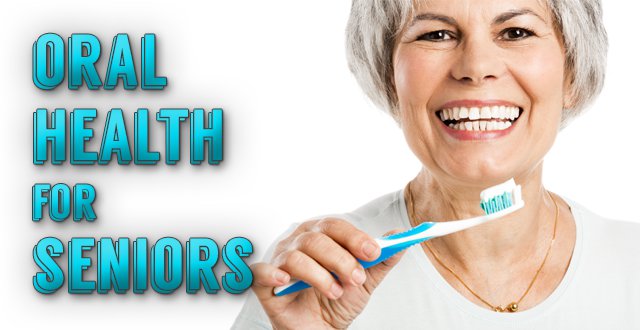Aging brings unique complications and concerns for dental care and treatment. As you age, you are at an increased risk for tooth decay and gum disease, which can result in the need for dentures. However, you can improve your chances of keeping your own teeth and avoiding dentures by continuing good oral health throughout your life.
Maintaining natural teeth for a lifetime has become more realistic for a larger number of people. As the first generation to grow up with fluoridated water, baby boomers are more likely to retain their natural teeth longer than their parents. Only about 25 percent of people over age 60 are missing all of their natural teeth, according to the Centers for Disease Control and Prevention (CDC).
Oral Hygiene
The basics of oral hygiene don’t change as you age. By brushing with fluoride toothpaste two times a day and flossing daily, you can help keep your teeth and gums healthy. Fluoridated water also can help prevent tooth decay at any age. According to the Academy of General Dentistry (AGD), research indicates that seniors who consistently use fluoride toothpaste or rinse have fewer cavities.
Brushing reduces the amount of bacteria that builds up on your teeth and gums. When bacteria remain in your mouth, you increase your risk for cavities. As you age, cavities are most likely to occur when bacteria get trapped in places where old fillings have worn away or chipped. You also are more susceptible to root decay, which can occur when gums recede and portions of a tooth’s root are exposed and infected with bacteria.
Don’t let mobility limits stop you from making brushing and flossing a daily priority. If arthritis or other motor issues make it difficult to brush, consider using a battery-powered toothbrush or devices that modify the handle of a toothbrush to make it easier to grip. Flossing can be simplified with the use of pre-threaded flossing devices or battery-powered water flossing machines.
Detecting Disease
An annual visit to your dentist also is important to maintaining dental health. The nerves inside your teeth become smaller and less responsive to pain as you age. You may not feel the pain from a cavity until the decay has destroyed a large part of the tooth. In addition, some more serious conditions, including gum disease and oral cancer, do not cause discomfort in their early stages. However, a thorough oral exam can identify and detect these conditions before they progress.
Severe gum disease, or periodontal disease, affects about 25 percent of 65- to 74-year-olds, according to the AGD. The condition results when bacteria are deposited from plaque left on teeth. When it remains in place, the bacteria irritate the gums. Symptoms of gum disease include redness, swelling, and bleeding.
As gum disease progresses, your teeth start to pull away from your gums. Spaces form between the teeth and gums, creating small pockets where bacteria can become lodged. The bacteria can destroy the surrounding gum and bones, causing pain and loss of the affected teeth. Your dentist can recognize the early signs of gum disease and offer treatment options.
Oral cancer also affects a significant number of seniors. The average age of an oral cancer diagnosis is 62 years, according to the American Dental Association (ADA). Initial symptoms may include mouth sores, red or white patches in the mouth, or changes in the tongue, lips, or lining of the mouth. However, these signs can be overlooked until they become painful and the disease has progressed. Having an annual dental exam allows for the early detection of oral cancer, and increasing the success of life-saving treatment.
Dry Mouth
Another common dental concern that accompanies aging is dry mouth. Dry mouth slows down the production of saliva. Without adequate saliva, food particles and acids remain longer on your teeth. The condition also can make swallowing, speaking, and eating more difficult.
Dry mouth is not caused by aging, but is a side effect of over 500 medications, according to the ADA. If you are being treated for allergies, asthma, anxiety or depression, high blood pressure, high cholesterol, pain, Parkinson or Alzheimer’s diseases, it’s likely that your medicine may be associated with dry mouth.
Your dentist can prescribe treatments to counter dry mouth. You also can reduce the effects of dry mouth by drinking plenty of water to keep your mouth lubricated. You can stimulate the production of saliva by chewing sugarless gum or lozenges.
Along with daily brushing and flossing, a healthy diet can improve your chances of having a healthy mouth. You can minimize the effects of dry mouth on your teeth and reduce your odds of cavities and oral cancer by avoiding sweets, caffeine, tobacco, and alcohol. Supplementing healthy meals with fluoridated water can boost your defenses against cavities and gum disease. Following up with an annual dental visit can help you ensure that your teeth and mouth are as healthy as possible.
Proper oral hygiene and regular Dentist visits can help ensure you keep your natural teeth healthy for longer!

